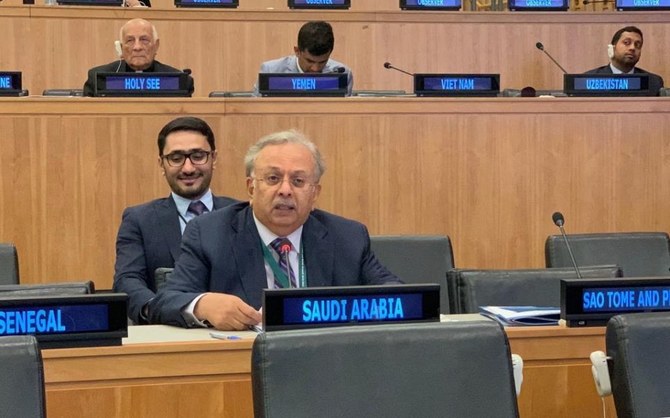NEW YORK: Saudi Arabia has pledged $3 million in support of the UN Alliance of Civilizations’s (UNAOC) plan of action, activities and programs over the next three years, the Saudi Press Agency reported on Saturday. UNAOC seeks to improve understanding and cooperation among nations and peoples across cultures and religions, in addition to countering polarization and extremism.
The donation was announced during a speech by the Kingdom’s permanent representative to the UN, Abdallah Al-Mouallimi, in a meeting for the UNAOC initiative on the sidelines of the 74th session of the UN General Assembly in New York.
In his speech, Al-Mouallimi said: “The world today is witnessing many conflicts, some of which are a result of the upsurge in hate speech and the growing violent ideologies in many countries around the world. This has led to the terrorist attacks against holy places and houses of worship as well as the murder of innocent people.”
He stressed that the matter requires the international community to take a serious stance and face this phenomenon.
Al-Mouallimi added: “We must believe that religious and cultural diversity in human societies does not justify the clash. It requires the establishment of a civilized partnership and building bridges of communication and dialogue.”
The initiative of UNAOC was a positive step toward promoting noble values, building bridges of love and peace, addressing all that violates holy places and providing security for houses of worship.
Abdallah Al-Moualimi, Saudi Arabia’s permanent representative to the UN
He highlighted that the Kingdom is one of the first countries to call for religious dialogue and the promotion of a culture of tolerance. “For this reason, it has established the King Abdullah bin Abdul Aziz International Center for Interreligious and Intercultural Dialogue and cooperated with the activities of the United Nations and UNAOC,” he said.
“The other factor that leads to conflict is occupation. The continuance of occupation, denying people their rights, marginalization, and oppression help spread extremist ideologies and hate speech.
“Palestine is a vivid example of that. Israel’s continued violations of international resolutions and its undermining of all opportunities for peace, in addition to the continued siege on the Palestinian people, the seizure of their lands and the destruction of their properties were the main cause threatening international stability, peace and security,” he said.
The Kingdom’s permanent representative to the UN conveyed his country’s appreciation for the determined and concrete efforts of UNAOC to foster a culture of peace, combat hate speech and face the spread of extremist ideologies, which violate holy places and kill innocent people.



























